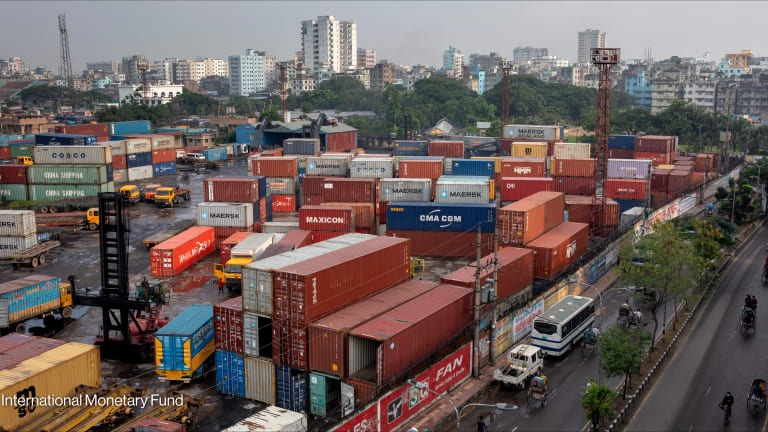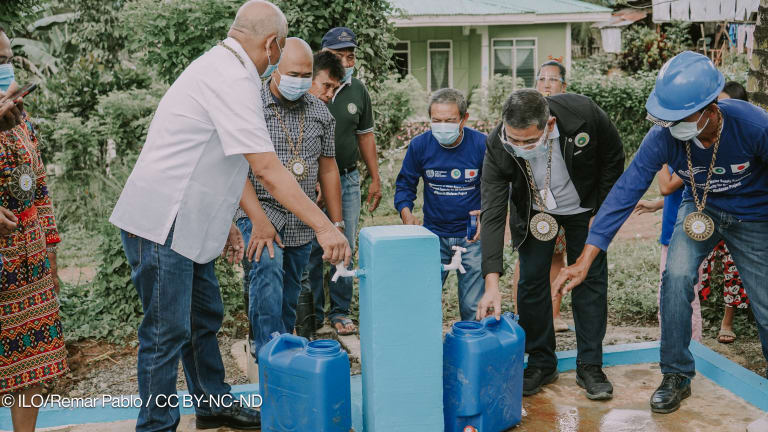
The Japan International Cooperation Agency last week withdrew most of its aid workers from Afghanistan after a string of attacks threatened to shrink their already dwindling numbers, while also refusing to deploy staff in the face of similar risks in Somalia.
Recent months have seen heightened aggression against aid workers in both countries, not surprisingly ranked first and second in the Humanitarian Outcomes’ list of nations with the highest rate of deliberate acts of violence against aid workers with 40 and two reported incidents for 2013, respectively.
In June, eight United Nations personnel were killed after Al-Qaeda militants bombed and shelled a U.N. compound in the Somalian capital of Mogadishu. Around the same time, three staff members of the Norwegian Refugee Council were kidnapped by unidentified gunmen in Herat, Afganistan, where humanitarians have been under fire since the beginning of the year.
JICA responded by keeping its staff away from the two conflict-ridden countries, thirsty for foreign aid and where Japan is backing slow-moving nationbuilding and peacekeeping efforts.
Japan has continuously pushed back the deployment of aid workers in Somalia, even after resuming in 2013 about $55 million in direct bilateral assistance to the country after 21 years of silence.
The amount was revealed at the Fifth Tokyo International Conference on African Development held in June in Yokohama, but a JICA official told Devex it will be given to international organizations such as the agencies of the United Nations ($41 million), International Organization for Migration ($10 million), ICRC ($4 million) and IFRC ($400,000) as safety issues appear to worsen in the African country still recovering from twenty decades of strife.
Lack of security blocking projects in Somalia
Mitsunori Saito, director of JICA’s Africa Division I, said the security restriction has been the biggest barrier to the agency implementing any direct projects in Somalia.
“For security reasons, it is not possible to conduct JICA’s technical cooperation activities on the ground, since the personnel dispatched by JICA would not be able to enter Somalia unless the security condition has changed,” said Saito.
The agency, he added, assesses the security situation in Somalia through sources like the Japanese Ministry of Foreign Affairs and other development partners.
Instead, JICA will be seeking other means of intervention, including offering trainings outside Somalia until the threats diminish. At the Yokohama conference, Japanese prime minister Shinzō Abe announced upcoming trainings for senior Somalia government officials to be held in Japan.
A parallel trend has been seen in Afghanistan. Due to the recent outbursts of violence, Japan has recommended that all its aid workers and citizens leave Afghanistan — the only country to do so to date.
JICA has also pulled out most its other staff from Afghanistan; while the exact number of transferred personnel is still unknown, a JICA spokesman in Tokyo told Devex they will return when the situation “has stabilized.”
This does not bode well for the country, already gearing up for the removal of all U.S. troops — and possibly, U.S. aid — by 2015. Japan — second only to the U.S. in delivering aid to Afghanistan amounting to $4.797 billion since 2001 and with up to 30 staff assisting in boosting infrastructure, and agricultural and rural development in the country — has pledged a further $3 billion in assistance to Afghanistan until 2016.
Read more development aid news online, and subscribe to The Development Newswire to receive top international development headlines from the world’s leading donors, news sources and opinion leaders — emailed to you FREE every business day.








